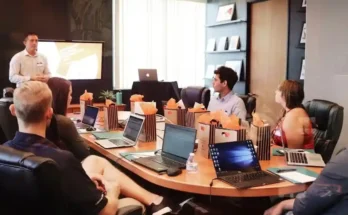What Is a Job, Really?
A job is often reduced to numbers: salary, hours, vacation days. It’s how we pay the bills, how we spend the majority of our waking lives, and how we measure success. But strip away the spreadsheets and contracts, and a job is something far more personal—it’s an extension of our identity, a contributor to our self-worth, and, for many, a pathway to purpose.
Jobs are not only economic mechanisms; they are social, emotional, and even philosophical concepts. They connect us with communities, define our routines, and provide a platform for personal and professional growth. Whether you’re serving coffee or coding software, your job says something about who you are—or at least, who you are becoming.
What we do for a living often becomes the first thing we share when meeting someone new. “So, what do you do?” is more than small talk. It’s a question of relevance, value, and even status. Society assigns importance to professions, sometimes unfairly, but undeniably.
The real question is: Do our jobs define us, or do we define our jobs? For many, the answer changes over time. Early in life, jobs are about exploration. Later, they’re about stability, ambition, and, sometimes, reinvention. The journey of finding the “right job” is often a lifelong one.
The Evolution of Jobs Through Time:
-
From Fields to Factories to Freelance
Jobs have always evolved with society. In ancient times, work was rooted in survival—hunting, farming, building. With the Industrial Revolution, factory work and manual labor redefined the structure of employment, giving birth to the concept of working hours and wages.
Then came the digital era. Jobs shifted from physical to mental tasks, from manufacturing to managing information. In the 21st century, the gig economy, remote work, and digital nomadism have created new ways of earning, outside the boundaries of traditional employment.
People are no longer tied to offices or even employers. A laptop and a stable internet connection can turn a living room into an income source. This freedom comes with both opportunity and complexity.
-
Technology and the Future of Work
The rise of artificial intelligence, robotics, and automation is rapidly changing what work looks like. Some jobs are becoming obsolete, while entirely new fields are emerging—UX design, data science, digital marketing, and ethical AI development to name a few.
It’s not about humans versus machines. It’s about humans working with machines. The future of work will require adaptability, continuous learning, and emotional intelligence—qualities no algorithm can truly replicate.
We’re heading into an era where creativity, collaboration, and critical thinking will matter more than technical expertise alone. The challenge is keeping up—and staying human in the process.
Job Satisfaction:
-
Chasing Fulfillment, Not Just Funds
A good paycheck can cover your needs. A meaningful job can feed your soul. Increasingly, people are looking beyond salaries and benefits to seek something more intangible: purpose. We want to know that our efforts matter, that our work contributes to something bigger than ourselves.
This doesn’t mean everyone must work in non-profits or solve world hunger. Purpose can be found in helping customers, solving problems, or building something beautiful. When we feel connected to the outcome of our work, we feel alive—even during the most mundane tasks.
-
Toxic Jobs and Mental Health
While a good job can uplift, a toxic one can destroy. Poor management, unrealistic expectations, and lack of recognition can drain even the most passionate employee. Burnout is not a buzzword—it’s a crisis. Mental health is finally becoming part of the workplace conversation, but much remains to be done.
The modern worker is not just a productivity unit—they’re a whole person with emotional needs. Companies that recognize this are leading the way. Flexible hours, remote work, and supportive cultures are no longer perks; they’re necessities in the new world of employment.
The Diversity of Jobs in the Modern World:
-
Everything in Between
The division between “blue collar” and “white collar” is rapidly fading. Today, you’ll find highly skilled mechanics who run six-figure businesses and PhDs who freelance from cafés. Job titles are blending, hierarchies are flattening, and innovation is coming from unexpected places.
Creative roles like content creation, video editing, and gaming have exploded. Meanwhile, traditional trades like plumbing and carpentry are experiencing a resurgence in demand. There’s no “better” job—there’s only the right job for you.
Society is beginning to value skill, not status. What matters isn’t how impressive your title sounds—it’s how meaningful your work feels.
-
The Gig Economy and Freelance Future
Apps like Uber, Upwork, and Fiverr have transformed side hustles into primary income streams. Freelancing offers flexibility, autonomy, and variety. But it also comes with insecurity, inconsistent income, and lack of benefits.
For many, the gig economy is a stepping stone—an experiment, a transition, or a backup plan. For others, it’s a lifestyle. The key is to understand its trade-offs and design a work-life balance that aligns with your values.
In a freelance world, you are your own boss—and your own HR, accountant, and marketing department. It’s liberating, but it’s also a job in itself.
Education and Skill to Employment:
-
Degrees vs. Skills
A degree used to be a golden ticket to a good job. Today, it’s just one of many paths. Employers are increasingly prioritizing skills over credentials. What can you do? What can you solve? What can you create?
Coding bootcamps, online certifications, apprenticeships, and portfolio-based hiring are changing the hiring landscape. Self-taught designers, YouTube-educated marketers, and course-certified data analysts are proving that learning doesn’t have to come with student debt.
That said, education still plays a role—it provides structure, networking, and foundational knowledge. But it’s no longer the only route to success.
-
Lifelong Learning
The most employable skill today is the ability to learn. Jobs will continue to shift. Technologies will continue to change. And those who adapt, grow, and upskill will not only survive—they’ll thrive.
Whether it’s learning a new language, mastering Excel, or diving into AI ethics, investing in knowledge is investing in your career. You don’t need to know everything—you just need the courage to learn something new.
Redefining Success in the Workplace:
-
Work-Life Harmony Over Hustle Culture
The era of glorifying overwork is coming to an end. Success is no longer defined by hours worked, emails answered, or the number of weekend meetings attended. It’s defined by balance—between work and rest, ambition and well-being.
We’re moving from work-life “balance” to work-life harmony. It’s not about separating work from life, but integrating them in a healthy, meaningful way. Flexible schedules, remote options, and mindful leadership are making this possible.
When people feel seen, heard, and supported at work, they don’t just perform—they flourish.
-
Jobs as Journeys, Not Just Destinations
No job is forever. And that’s okay. The average person will have multiple careers over their lifetime. Each role is a stepping stone, each position a chapter in a larger story.
Your first job might teach you discipline. Your next one might unlock your creativity. Another might challenge your values and lead you to a calling you never expected. Every job adds to your identity, skills, and confidence.
In the end, the goal isn’t to have one perfect job. It’s to create a career that reflects your evolving self.
Conclusion:
In a world that never stops changing, jobs will continue to evolve. What matters most is not the prestige of the title or the digits on the paycheck—but the connection you feel to your work, your purpose, and your potential.
Jobs are no longer just ways to earn a living. They are ways to craft a life. So choose wisely, grow consistently, and remember: You are not your job, but your job can be part of the person you’re proud to become.




